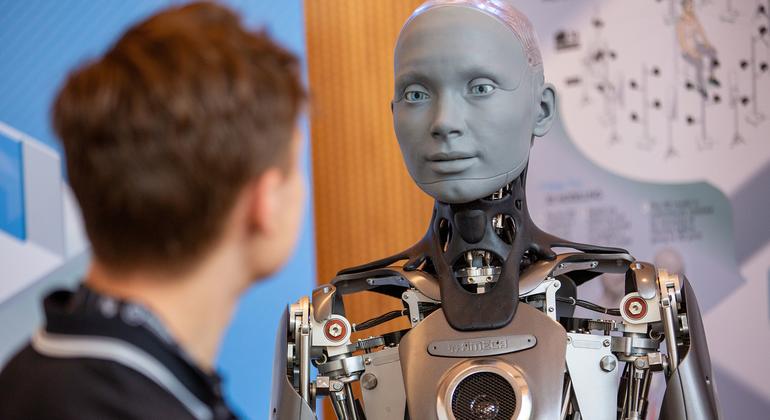‘Irrefutable’ need for global AI governance: UN experts


“The nature of technology – cross-border in structure and application – requires a global approach,” final report from the panel appointed by the Secretary-General of the United Nations.
Artificial intelligence (AI) is transforming our world, from opening up new areas of scientific research and optimizing power grids, to improving public health and agriculture and driving progress around the world. Sustainable Development Goals (Sustainable Development Goals).
However, while AI has enormous potential to deliver good if left unregulated, its benefits may be limited to a small number of pioneering countries, companies and individuals, widening the digital divide and inequality.
In an effort to mitigate these risks, the report proposes a number of recommendations for establishing a global AI governance framework.
Growing concerns about human rights
The report also expressed deep concerns about the ways in which AI could be used to violate human rights.
The raw materials needed for AI technology – including critical minerals – are sourced globally, leading to a global battle for power and wealth over these rare commodities.
Furthermore, autonomous weapons systems can make decisions without human intervention, raising ethical and legal questions about accountability and the protection of civilians in conflicts. The potential for an increased arms race due to advances in AI technology could also pose a threat to human security.
AI bias and surveillance is another area of concern, as the creation and dissemination of misinformation has the potential to harm civilians.
Gaps have appeared
The disparity has already begun to emerge. In terms of representation, many parts of the world have been left out of discussions about international AI governance.
For example, just seven countries (Canada, France, Germany, Italy, Japan, the UK and the US) are parties to seven prominent non-UN AI initiatives, while 118 countries, mostly in the Southern Hemisphere, did not join any party..
“Equity requires more voices to play a meaningful role in decisions about how to manage the technologies that affect us.“, the report stated.
“The centralization of decision-making in the AI technology sector is untenable; we must also acknowledge that historically, many communities have been completely excluded from AI governance discussions that impact them,” the report added.
Global Architecture
To address these concerns, the UN expert panel has proposed a number of recommendations to regulate the use of AI.
The report’s recommendations include a independent international scientific council on AI, an intergovernmental and multi-stakeholder meeting that takes place twice a year policy dialogue on AI governance to share best practices and a global fund for AI to bridge the digital divide.
The group also stressed that Any deployment of AI in a military context must comply with international humanitarian law. and human rights standards and recommends that countries establish strong legal frameworks and monitoring mechanisms.
Overall, these recommendations call on UN member states to lay the foundations for the first global architecture for AI governance based on international cooperation and transparency.




